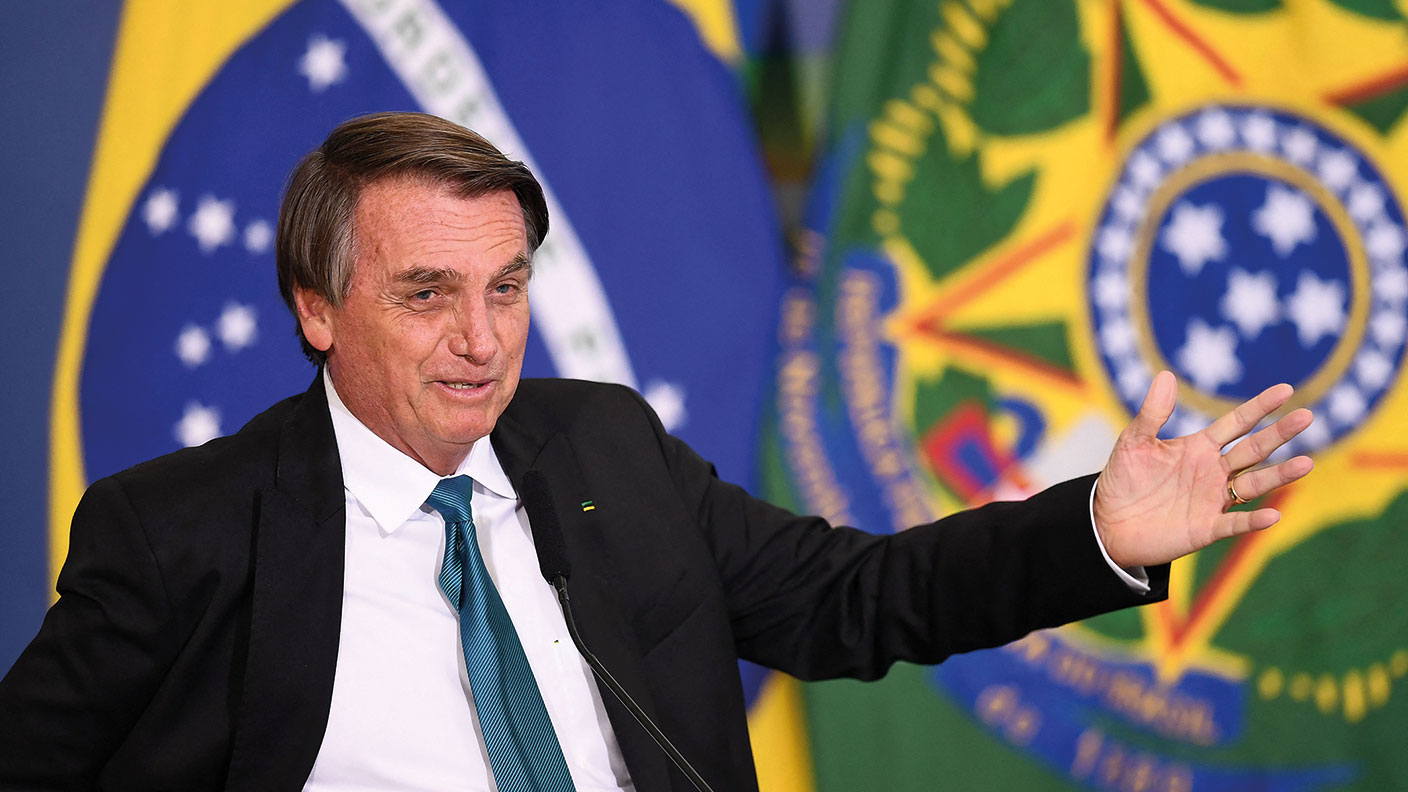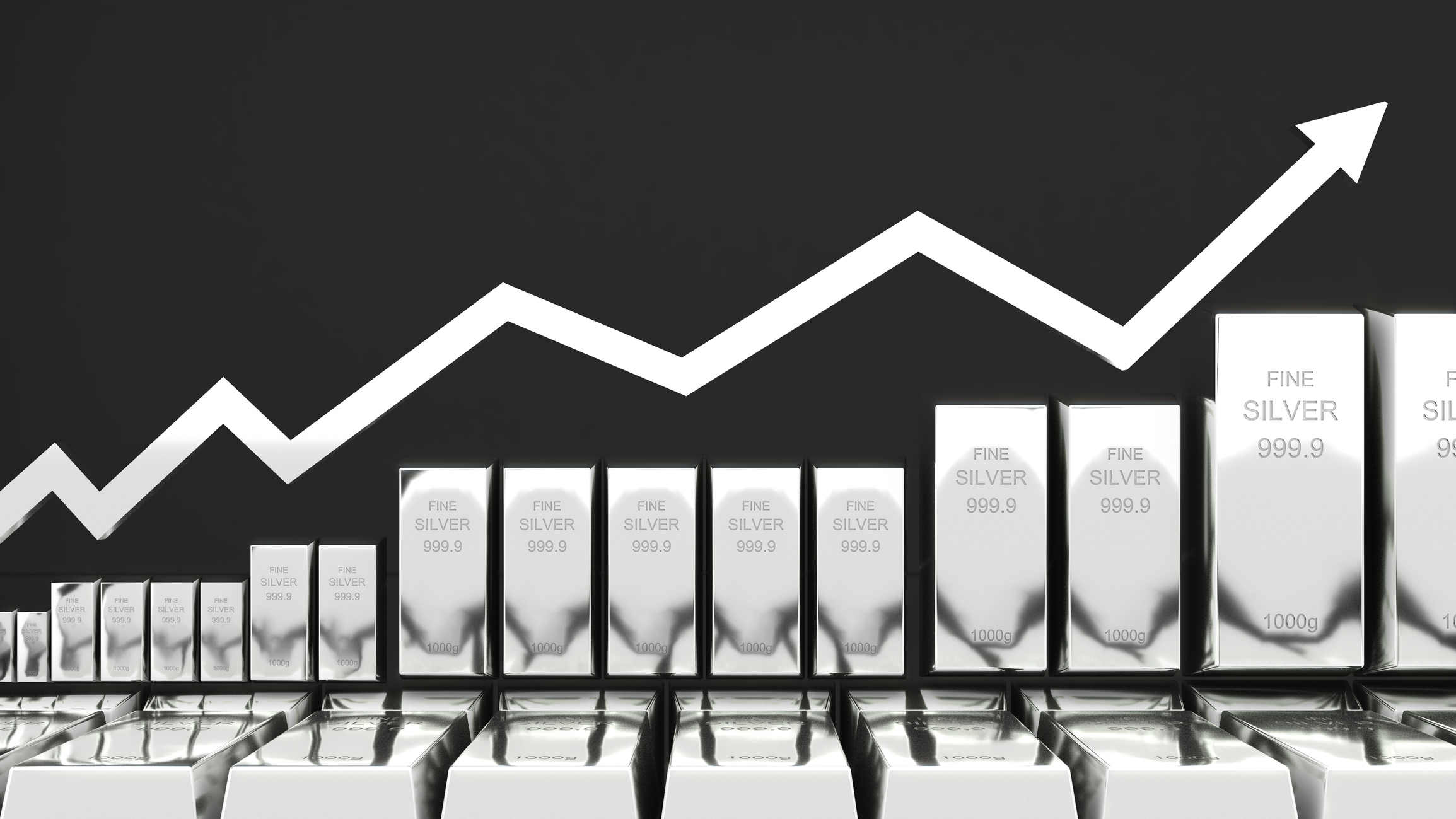Why Latin American stocks are attractive right now
Low valuations and soaring commodity prices have boosted Latin American stocks this year. Alex Rankine looks at why the region is lucrative right now.

Get the latest financial news, insights and expert analysis from our award-winning MoneyWeek team, to help you understand what really matters when it comes to your finances.
You are now subscribed
Your newsletter sign-up was successful
Want to add more newsletters?

Twice daily
MoneyWeek
Get the latest financial news, insights and expert analysis from our award-winning MoneyWeek team, to help you understand what really matters when it comes to your finances.

Four times a week
Look After My Bills
Sign up to our free money-saving newsletter, filled with the latest news and expert advice to help you find the best tips and deals for managing your bills. Start saving today!
Latin America is proving “a darling destination for investors in 2022”, say Anisha Sircar and Rodrigo Campos for Reuters. Low valuations and soaring commodity prices have given the region’s stocks a boost. Currencies in Brazil, Colombia, Peru and Chile are the “four best-performing across emerging markets against the dollar” so far this year.
Stronger local currencies help flatter gains for foreign investors. The MSCI Emerging Markets Latin America (LatAm) index has gained 25% in dollar terms year-to-date, even as the broader MSCI Emerging Markets (EM) index has dropped 8%.
That spurt of outperformance is welcome after a long spell of disappointment. In the three years up to 14 March, the MSCI Latin America index fell 4.7%, compared with a 9.8% gain for the MSCI Emerging & Frontier Markets index, says Kathleen Gallagher for Investment Week.
MoneyWeek
Subscribe to MoneyWeek today and get your first six magazine issues absolutely FREE

Sign up to Money Morning
Don't miss the latest investment and personal finances news, market analysis, plus money-saving tips with our free twice-daily newsletter
Don't miss the latest investment and personal finances news, market analysis, plus money-saving tips with our free twice-daily newsletter
Brazil, the region’s biggest economy, fell into a severe recession in the middle of the 2010s. It was barely recovering before Covid-19 struck.
Yet with commodity prices rising, prospects are now looking up. Data from the Institute of International Finance shows that “on average, 72% of total exports in the largest Latin American countries were linked to commodities last year”.
With Russian supplies disrupted, the world is especially desperate for Brazilian crops, Colombian oil and Chilean copper. The region’s markets are closely correlated with commodity price movements; the last big boom coincided with the great commodity supercycle of the early 2000s.
Brazil is back in fashion
Brazil plays an outsize role in the landscape, since its stocks account for 62% of the MSCI LatAm. The local Ibovespa index has gained 15% so far this year. “High yields” and “cheap stocks” are drawing in investors, says Vinicius Andrade on Bloomberg, with $14bn of net inflows by foreign investors since mid-December. “Even after the recent rebound, the Ibovespa is trading at
7.7 times forward earnings, below its ten-year average of 11.7 times.
Not everything is rosy, says The Economist. Generous pandemic fiscal help and the “worst drought in 90 years” have combined to drive Brazilian inflation up to 10.5%. Incumbent president Jair Bolsonaro is a “fiscal chameleon” and is splurging public money in a bid to boost his flagging support.
That plan isn’t working. Polls suggest that Bolsonaro is on course to lose to former president Luiz Inácio Lula da Silva in elections this autumn. Leftwing Lula’s victory in 2002 “spooked the markets, but he was reasonably responsible in his spending in his first term, at least”. The rally shows investors are confident that Lula will “govern moderately” should he triumph again.
Get the latest financial news, insights and expert analysis from our award-winning MoneyWeek team, to help you understand what really matters when it comes to your finances.
Alex is an investment writer who has been contributing to MoneyWeek since 2015. He has been the magazine’s markets editor since 2019.
Alex has a passion for demystifying the often arcane world of finance for a general readership. While financial media tends to focus compulsively on the latest trend, the best opportunities can lie forgotten elsewhere.
He is especially interested in European equities – where his fluent French helps him to cover the continent’s largest bourse – and emerging markets, where his experience living in Beijing, and conversational Chinese, prove useful.
Hailing from Leeds, he studied Philosophy, Politics and Economics at the University of Oxford. He also holds a Master of Public Health from the University of Manchester.
-
 Average UK house price reaches £300,000 for first time, Halifax says
Average UK house price reaches £300,000 for first time, Halifax saysWhile the average house price has topped £300k, regional disparities still remain, Halifax finds.
-
 Barings Emerging Europe trust bounces back from Russia woes
Barings Emerging Europe trust bounces back from Russia woesBarings Emerging Europe trust has added the Middle East and Africa to its mandate, delivering a strong recovery, says Max King
-
 Barings Emerging Europe trust bounces back from Russia woes
Barings Emerging Europe trust bounces back from Russia woesBarings Emerging Europe trust has added the Middle East and Africa to its mandate, delivering a strong recovery, says Max King
-
 How a dovish Federal Reserve could affect you
How a dovish Federal Reserve could affect youTrump’s pick for the US Federal Reserve is not so much of a yes-man as his rival, but interest rates will still come down quickly, says Cris Sholto Heaton
-
 Three companies with deep economic moats to buy now
Three companies with deep economic moats to buy nowOpinion An economic moat can underpin a company's future returns. Here, Imran Sattar, portfolio manager at Edinburgh Investment Trust, selects three stocks to buy now
-
 Should you sell your Affirm stock?
Should you sell your Affirm stock?Affirm, a buy-now-pay-later lender, is vulnerable to a downturn. Investors are losing their enthusiasm, says Matthew Partridge
-
 Why it might be time to switch your pension strategy
Why it might be time to switch your pension strategyYour pension strategy may need tweaking – with many pension experts now arguing that 75 should be the pivotal age in your retirement planning.
-
 Beeks – building the infrastructure behind global markets
Beeks – building the infrastructure behind global marketsBeeks Financial Cloud has carved out a lucrative global niche in financial plumbing with smart strategies, says Jamie Ward
-
 Saba Capital: the hedge fund doing wonders for shareholder democracy
Saba Capital: the hedge fund doing wonders for shareholder democracyActivist hedge fund Saba Capital isn’t popular, but it has ignited a new age of shareholder engagement, says Rupert Hargreaves
-
 Silver has seen a record streak – will it continue?
Silver has seen a record streak – will it continue?Opinion The outlook for silver remains bullish despite recent huge price rises, says ByteTree’s Charlie Morris